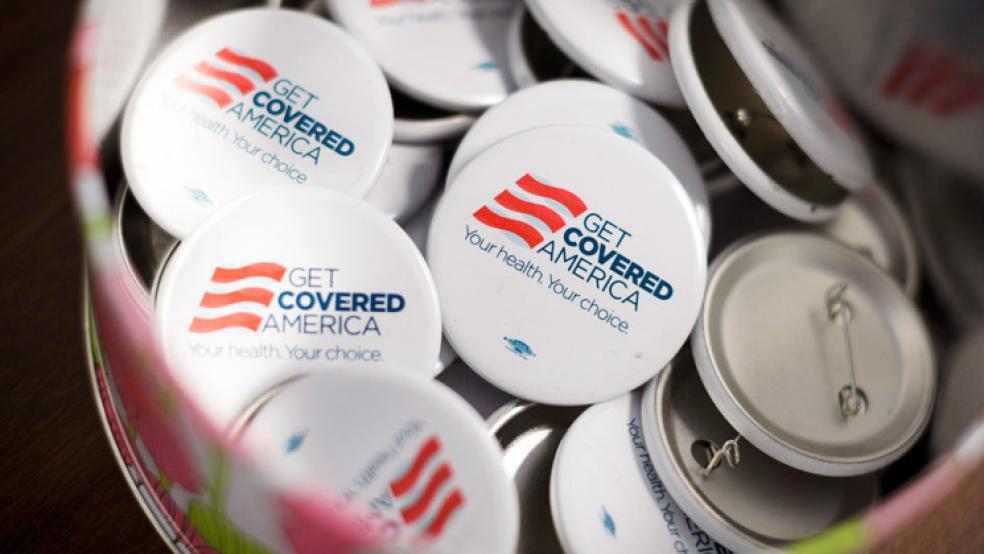Right now, the U.S. Supreme Court is deciding whether to hear a case that could have devastating implications for Obamacare and hundreds of thousands of people currently receiving health insurance through its exchanges.
The case, King v. Burwell, is one of several challenges based on language in the Affordable Care Act that authorizes the government to offer subsidies to people who enroll in policies sold on the health exchanges. The subsidies were introduced to make health care coverage more affordable, but the lawsuits charge that the wording of the Affordable Care Act doesn’t allow for federal subsidies.
Related: Obamacare Subsidies Could Still Face Supreme Court
The issue lies with four words in the law. The language reads that people are eligible for subsidies when they purchase health insurance on an exchange “established by the state.”
The plaintiffs in these cases argue that since the law doesn’t explicitly mention the federal exchange, people who sign up for coverage in any of the 34 states that rely on the federal portal, HealthCare.gov, are not legally eligible to receive subsidies.
If the court sides with them, anyone who signed up through HealthCare.gov and received a subsidy — some 4.6 million people — would have to pay more for their coverage unless Congress amends the law.
This year, 85 percent of Obamacare enrollees received federal subsidies.
Related: Obamacare Subsidy Overpayments: How to Recoup?
The cases, including the more well-known Halbig v. Burwell, have sparked great concern among lawmakers and Obamacare advocates, who fear that an unfavorable ruling could derail the entire health care law.
“That'd be a huge deal. The tax credits, worth hundreds or even thousands of dollars a year, are what make it possible for these people to afford coverage in the first place,” Jonathan Cohn writes in The New Republic. “Take away those subsidies and many become uninsured and the system in those states more or less collapses—an outcome that supporters of the lawsuits have said openly they desire.”
Related: Obamacare Could Go Back to the Supreme Court
Earlier this year, King v. Burwell was rejected by a three-judge panel from the Fourth Circuit Court of Appeals in Richmond, VA. But the plaintiffs appealed the case and petitioned it to be heard before the highest court. The Supreme Court is expected to announce whether it will take on the case by Monday.
Ahead of the decision, a group of Democratic lawmakers who drafted the law’s language penned an op-ed in The Washington Post arguing that the plaintiff’s interpretation of the law is wrong. They say the ACA’s intentions were always to offer subsidies to all Obamacare enrollees — not just those on state-run exchanges.
“None of us contemplated that the bill as enacted could be misconstrued to limit financial help only to people in states opting to directly run health insurance marketplaces,” the lawmakers wrote.
The letter was sent by Sens. Tom Harkin (D-IA) and Ron Wyden (D-OR) and Reps. Sandy M. Levin (D-MI), George Miller (D-CA) and Henry Waxman (D-CA).
If the Supreme Court decides to hear the case, legal experts expect that Chief Justice John Roberts will be “a literalist on the statute.”
“The only question to be asked is, is the language plain or is it not,” Mark Rust, managing partner in the Chicago office of law firm Barnes & Thornburg, told The Fiscal Times. “Right away in Section 13-11 of the law, it starts right out saying ‘states shall establish an exchange’.... It’s pretty clear.”
If the Supreme Court follows that logic, Congress will ultimately have to decide whether to amend the law to include the federal exchanges — and the chances of Republicans voting to expand Obamacare’s reach is already quite slim and may be even slimmer depending on the results of next Tuesday’s midterm elections.
Top Reads from The Fiscal Times:





